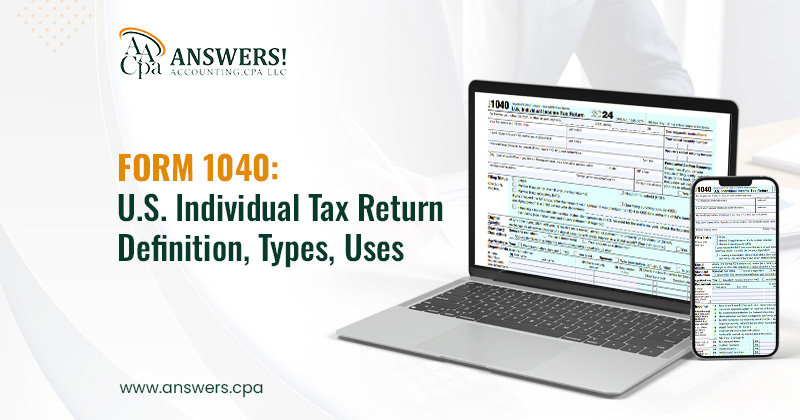Navigating HUD Audits: Compliance and Best Practices
Should your institution happen to be affiliated with U.S. Department of Housing and Urban Development (HUD) funding, you may have heard about the concept of 'HUD audit' before. Audits like these would primarily exist with the aim of sanctioning the right use of federal aids and ensuring compliance with the HUD practices by these organizations. It’s quite a process, and let me break it down in simpler terms for ease of understanding the whole process.
In this blog, we will discuss all aspects of HUD audits; what they are, why they are important, and how to get ready for them and what pitfalls to avoid.
What is a HUD Audit?
HUD audit is an evaluation of an entity’s financial documents and activities in order to ensure compliance with the laws and regulations set forth by HUD. This means that in the case of monitoring HUD funds, your organization will be evaluated by an independent auditor on the ways pill Program guidelines are adhered to and program funds are managed.
HUD money aims at improving the living standard of the less fortunate such as very low-income groups of people or regions. In order to curb any chances of abuse, crockery or petty mistakes that might go out of hand, consideration should be done on these funds so that their allocation is controlled and redirected strictly for the purposes intended. In other words, a HUD audit is similar to an organizational financial health examination.
Why is a HUD Audit Important?
The reason why these HUD audits are important is that they ensure transparency and accountability. These audits help to make sure that public housing agencies, non-profits, or even private landlords are not squandering the federal funds allocated to them. Wasting such resources can lead to serious ramifications, such as being blacklisted from further funds or charged fines.
Attaining a passing grade on a HUD audit demonstrates effective control of funds within an organization. This fosters confidence among internal and external stakeholders, funders and the general public. Furthermore, one should appreciate that an audit failure carries a stigma that will have negative repercussions on the charity and also prompt close monitoring from HUD.
Who Conducts HUD Audits?
Independently, as third-party auditors, HUD audits are performed mostly by certified public accountants (CPAs) or audit firms that are well-versed in HUD rules and regulations. These auditors shall be knowledgeable of the HUD program requirements and shall adhere to the applicable federal standards for conducting an audit such as GAGAS.
The audit firm you select needs to be experienced in HUD regulations because it is not only a numerical exercise. It is important for them to know the guidelines specific to HUD programs so that they can effectively evaluate your books of accounts and compliance.
When Does a HUD Audit Occur?
When the administration’s yearly review is performed for the relevant organizations that receive housing assistance from USD HUD, governments often audit HUD. In addition to that, if your organization spends $750,000 in Federal grant funds in a year, you will have to conduct a Single Audit on the organization under the Single Audit Act. This is an important amount due to the fact that it determines whether or not an audit is necessary.
The time of the conduct of the review is dependent of course on the fiscal calendar of the organization in question while also taking into account the reporting of HUD and its requirements. Some of the organizations may conduct internal audits or even go to the extent of having a third party review the organization prior to the official HUD audit. This is a good practice as it helps sustain any challenges before the actual assessment.
Who is Required to Undergo a HUD Audit?
Not every organization is subject to a HUD audit. However, if you receive HUD funding, chances are you’re on the list. Organizations required to undergo a HUD audit include:
Several types of organizations are subject to HUD audits, including:
- Public Housing Authorities (PHAs)
- Non-profits that receive HUD grants
- Private property owners who participate in HUD’s housing programs
- Multifamily housing owners who receive federal subsidies or participate in affordable housing programs
- Community Development Block Grant (CDBG) recipients
What Types of HUD Audits Exist?
There are different types of HUD audits depending on the nature of your organization and the funding you receive:
Single Audit: Alternately called an A-133 audit, this type is popularly used among entities that obtain federal assistance of over $750,000. It involves aspects of financial statements and compliance with the Department of Housing and Urban Development (HUD) policies. It is a complete assessment in order to guarantee that all is well.
Financial Statement Audit: This audit is concerned only with the particulars contained in your financial statements. The auditor will verify the financial control over the use of the HUD funds by your organization and whether these funds have been accurately reported.
Compliance Audit: This audit examines if your institution abides by the applicable HUD laws, rules, and policies. It may include aspects such as the receipt and processing of tenant rents, legal spheres for admissions, and the upkeep of the premises. That is, departmental funds are managed correctly and all program requirements are adhered to.
How Does the HUD Audit Process Work?
The HUD audit process might sound complicated, but it follows a clear structure. Here’s how it generally works:
Hiring an Auditor: The first step is for your organization to employ an independent and qualified auditor who is able to perform HUD audits. Ensure that the person’s knowledge includes HUD regulations.
Preparation: Next, you will need to prepare all essential documentation. This includes all the financial statements, records of tenants, farm maintenance records, and any other relevant documents to your house and urban development program.
Fieldwork: This is when the auditor comes in and reviews your records. They might physically come to the office for inspection or do it via electronic means. Always audit the client’s financial statements, records of tenants and others to check for compliance.
Audit Report: When the auditor is done with this procedure, they will write an audit report. This document will inform of any differences, mistakes, or failure to meet requirements that they encountered. If there was such a problem, recommendations for amelioration would be made.
Follow-up: In the event of your institution encountering challenges as the audit is being conducted, then the issues will be resolved. HUD can also ask you to transform some of your financial way of doing business or even procedures.
What Documents and Records Are Reviewed During a HUD Audit?
During a HUD audit, the auditor will ask for several key documents and records. Some of the most important include:
- Financial statements
- General ledger
- Tenant files Contractors
- Maintenance logs
- Program compliance reports
These records should be up-to-date, accurate, and organized. Any missing or incomplete documents could raise red flags during the audit.
When Should You Prepare for a HUD Audit?
The most effective way to avoid any surprises during a HUD audit would be to always be in a state of preparedness. HUD compliance should be seen as a process that is carried out on a continuous basis rather than an activity that is performed only when one is preparing for an audit. This means keeping proper and clean records, adhering to financial controls, and evaluating all the practices of the organization periodically to ensure everything is correct.
Many organizations run their internal audits within the year so that they can find and address any problems before the real HUD audit comes in. Additionally, it’s a good idea to keep track of any alterations in HUD policies, as they may provide insight into what the auditors will be looking for.
How Can You Avoid Non-Compliance During a HUD Audit?
Avoiding non-compliance is all about good preparation and organization. Here are a few practical steps to help you stay compliant:
Keep accurate records: Make sure your financial records are complete and properly documented. Every transaction should have a clear paper trail.
Stay up to date with HUD guidelines: HUD regulations change frequently, so make sure your team is aware of any updates.
Train your staff: Ensure that everyone involved in managing HUD funds or programs knows the compliance requirements. It’s not just about financial management, but also making sure all program rules are followed.
Conduct regular internal reviews: Perform routine checks on your financial and compliance records so you can catch any mistakes early.
What are the Consequences of Failing a HUD Audit?
Failing a HUD audit can lead to a range of consequences, some of which can be quite severe. The most common outcomes include:
Financial penalties: HUD may require your organization to pay fines or return misused funds. This can severely impact your organization’s financial health.
Loss of future funding: HUD may decide to cut off or reduce your organization’s funding. This could be devastating if you rely heavily on HUD assistance to operate.
Damage to your reputation: A failed audit can damage your credibility with donors, investors, and the public. This may make it harder to secure future funding or partnerships.
Increased scrutiny: If you fail an audit, HUD may require more frequent audits in the future, which can be time-consuming and costly.
What Common Mistakes Should Be Avoided During a HUD Audit?
To ensure a smooth audit, it’s important to avoid these common mistakes:
Disorganized records: Poorly kept financial records are one of the biggest issues auditors encounter. Make sure your documentation is organized and easy to access.
Inconsistent compliance: Failing to follow HUD regulations, even small ones, can lead to audit issues. Stay informed and follow all HUD rules.
Last-minute preparation: Don’t wait until the last minute to prepare for an audit. Begin preparations well before the audit period.
Untrained staff: Make sure everyone involved understands HUD regulations. Even small mistakes by staff members can result in non-compliance.
How Can Outsourcing with Answers Accounting CPA Help?
HUD audits can be complex and time-consuming. Many organizations choose to outsource their audit preparation and compliance efforts to professionals. This is where Answers Accounting CPA comes in. By outsourcing to Answers Accounting CPA, your organization can benefit from:
Expertise in HUD regulations: Our team of professionals is experienced in HUD compliance, so you can be confident that all the regulations are being followed.
Efficient audit preparation: We assist with organizing and reviewing all necessary documents before the audit. This helps avoid any last-minute scrambling or missing information.
Ongoing support: Answers Accounting CPA doesn’t just help with audit preparation. We provide continuous support to make sure your organization remains compliant year-round.
Stay Compliant With Answers Accounting CPA
Staying compliant with HUD requirements is crucial for the financial health and credibility of your organization. HUD audits can seem daunting, but with the right preparation and guidance, you can navigate them smoothly. Whether you’re preparing for your first HUD audit or looking to improve your compliance processes, having the right support makes all the difference.
Answers Accounting CPA is here to provide the expertise, guidance, and auditing services your organization needs to stay HUD-compliant and thrive in the world of federal housing programs. Let us help you make HUD audits less stressful and more manageable.
FAQ’s
What is the difference between a HUD audit and a standard financial audit?
HUD audit focuses on both financial compliance and operational adherence to HUD-specific regulations, while a standard audit mainly looks at financial reporting accuracy.
How long does a HUD audit usually take?
The duration can vary, but typically, the fieldwork phase lasts between a few days and a few weeks depending on the complexity of your organization.
Can a HUD audit be conducted virtually?
Yes, many audits are now conducted virtually, especially since the COVID-19 pandemic. However, this may depend on the availability of records in electronic form.
Are there penalties for late submission of HUD audit reports?
Yes, failure to submit audit reports on time can result in penalties, including loss of funding or increased scrutiny in future audits.
What qualifications should a HUD auditor have?
The auditor should be a licensed CPA and have experience in federal audits, particularly in areas involving HUD regulations.








